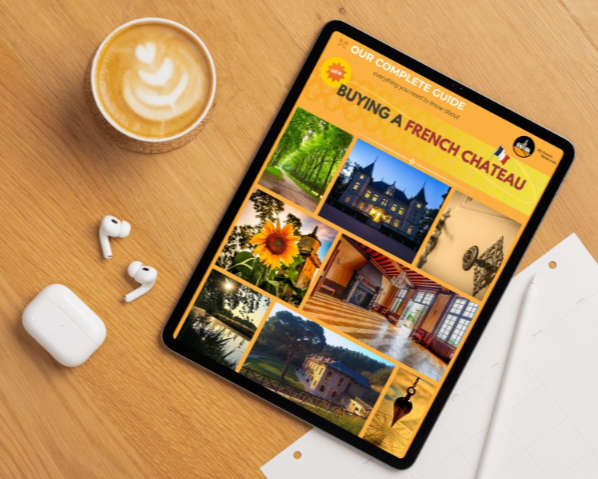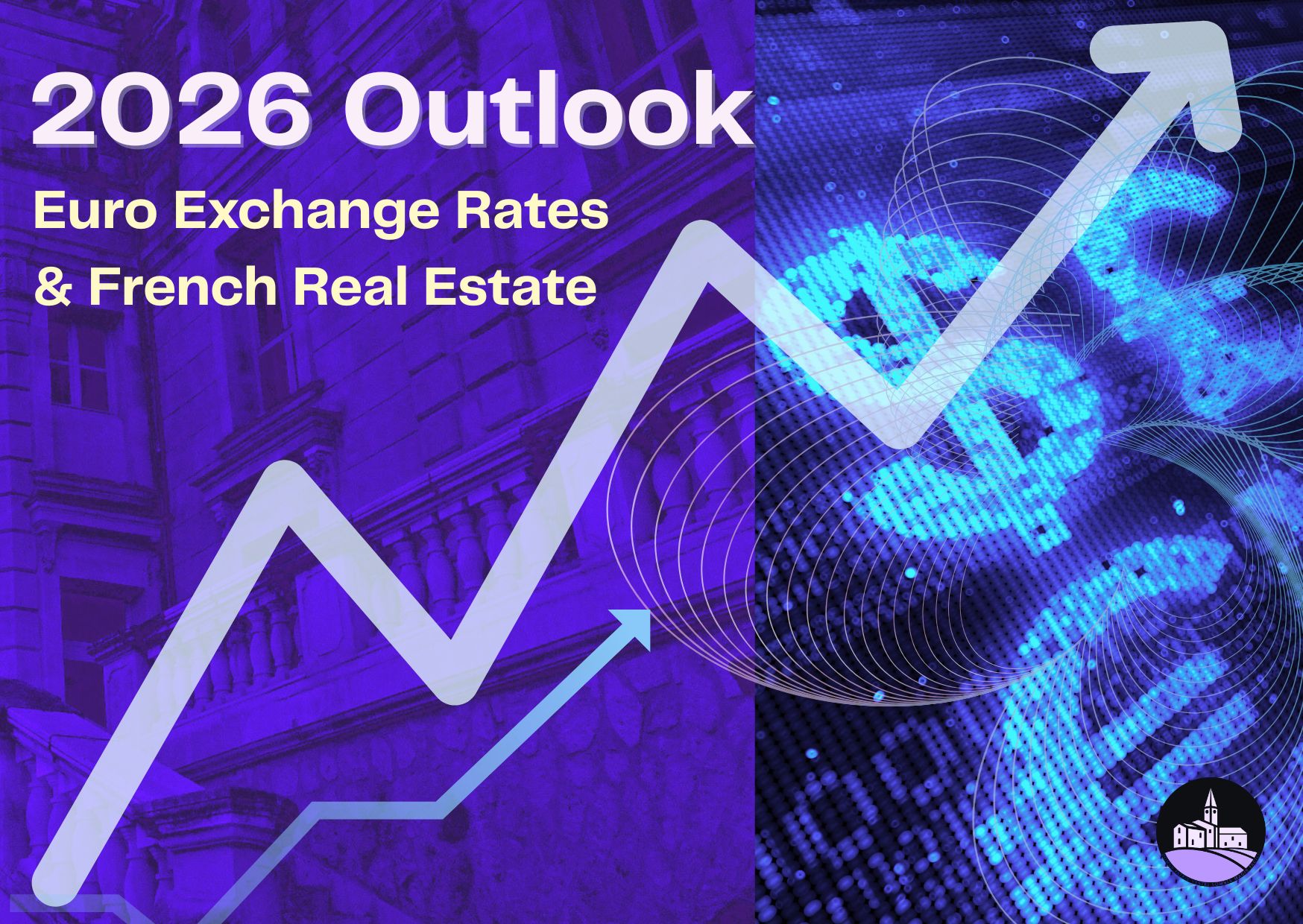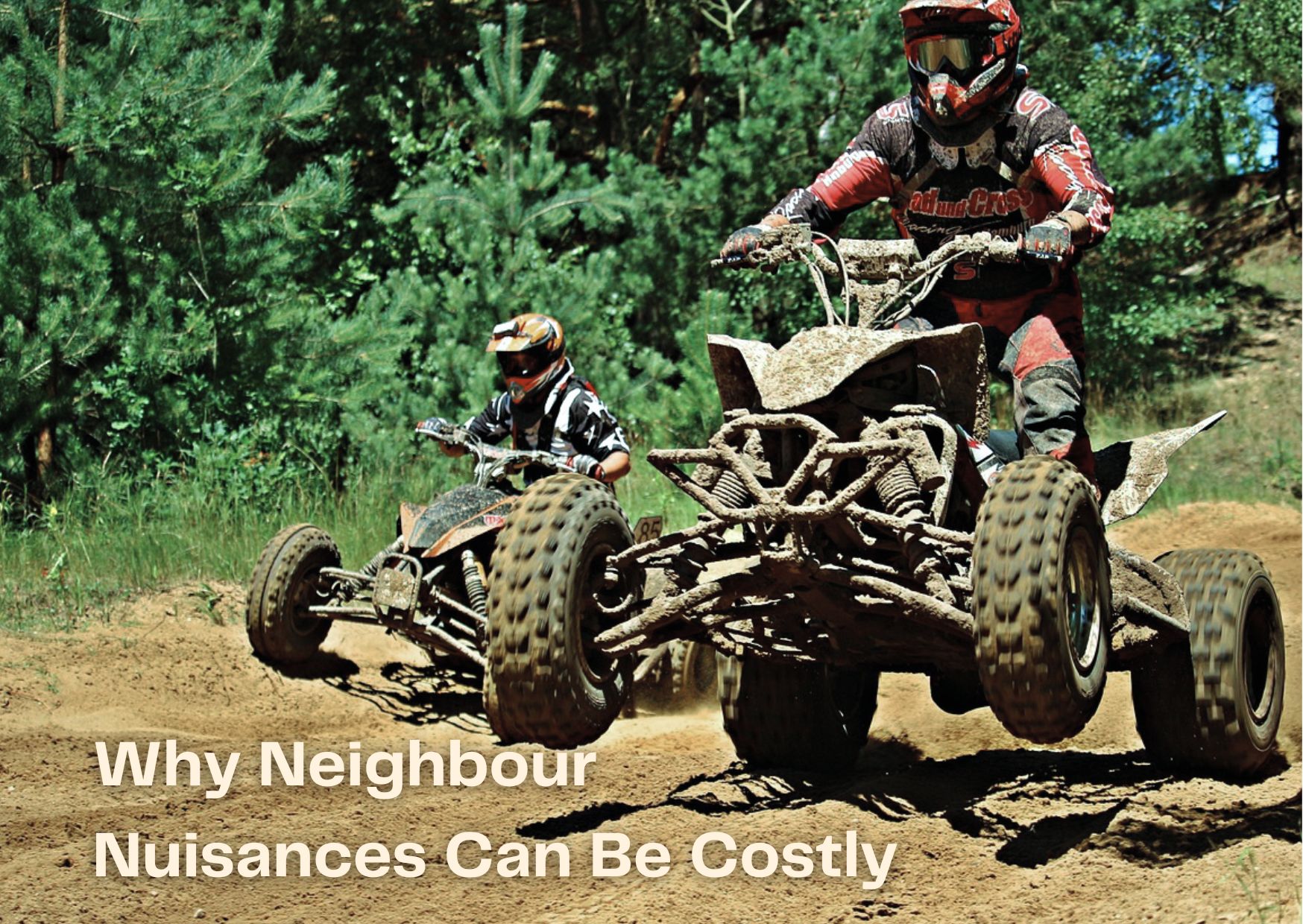Discover the process of purchasing a château, a castle or a historic real estate in France. At my-french-house.com, we live and breathe châteaux, any château, anywhere, and in any condition. But when you live in France, they are everywhere - thousands of castles in all shapes and sizes, typically visited on educational trips, as a day out with friends or on family holidays. It’s one of the many perks of living in France and running an award-winning property website!
My first encounter with a château was in primary school, when we visited the medieval Château de Mauvezin, a fortress in the heart of the Occitanie region. We also visited the town of Foix, which is dominated by its castle, and was once known as a centre of the Cathars. I was mesmerised. Little did I know I’d be involved in a small renovation project as a teenager, and decades later, writing this buyer’s guide! Over the years, we’ve visited many more castles, some public, some privately owned, listed hundreds of domaines and estates, and published numerous articles, stories, and expert tips related to buying and renovating historic châteaux.
Our Guide to Buying a Château
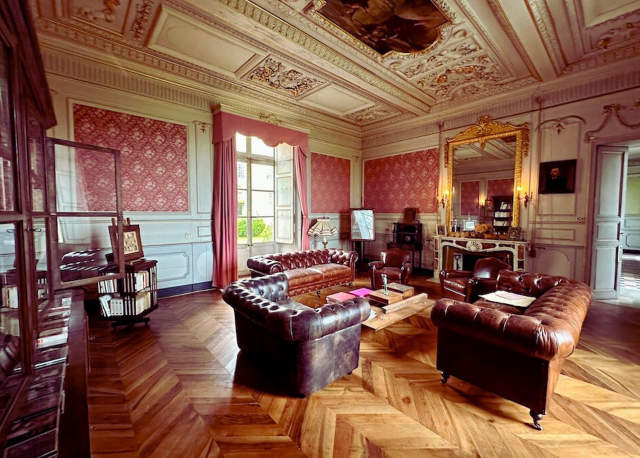
Buying a French château is a dream come true for some, offering historical value, châtelain lifestyle, investment potential and a legacy. But where do you start? The process can be long and complex, especially for foreign buyers.
This guide aims to provide potential purchasers with all the information they need to research, make an informed decision and turn their dream into reality.
Why Invest in a Château?
Historical Value
France is home to some of the world's most beautiful historic estates, each with its own story and legacy. Owning a château is like buying a piece of French heritage; many of them were once occupied by nobility, Kings and Queens. As the new 'châtelain', you become the custodian of the property's history, responsible for its upkeep and preservation.
Luxury Lifestyle
Châteaux often come with vast estates, extensive parks, and extraordinary architectural features, sometimes with an old chapel. They provide a sanctuary away from the chaos of everyday life, offering security and a slower pace. Imagine exchanging vows in the beautiful gardens of a centuries-old château or celebrating milestone birthdays surrounded by the historical elegance of these splendid settings.
Investment Potential
Châteaux can be profitable, particularly when used for tourism or as boutique hotels or Bed and Breakfasts. They can generate income by transforming them into wedding venues, rented out for vacation stays or seminars or used for glamping and agricultural activities such as vineyards, wood production and truffle farming. It's essential to consider your motivations for owning a château, and to have a realistic understanding of its potential income, expenses, challenges, and rewards.
Privacy and Space
A château offers privacy and space, which is often hard to find in modern urban living. The large estates surrounding châteaux allow for ample distancing from neighbouring properties, ensuring long-term peace for the owners, their families and guests.
Understanding Costs
Initial Investment
Châteaux prices range from a few hundred thousand euros to millions, depending on location, condition and historical significance. It's crucial to have a thorough inspection conducted to understand the scope of any work needed and to factor in the costs of renovation and ongoing maintenance.
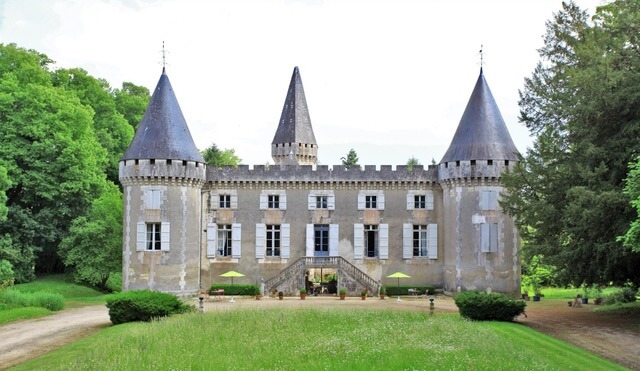
A chateau for sale in Dordogne
Renovating a Château
Many châteaux require renovation work to bring them up to modern standards, and ongoing maintenance can become quite expensive. Depending on the château's condition, expect to invest in plumbing, heating, sanitation, electrical systems, roofing and other key aspects. It's a long-term commitment that requires careful budgeting and planning.
Property Taxes and Fees
France has annual property taxes (taxe foncière) and a tax on the value of luxury properties. These property taxes can be substantial, so it's essential to factor them into your budget. There may be tax advantages to owning a château in France, particularly if the property is listed as a historic monument.
Château Insurance
Given the size and value of a château and its often-valuable contents, insurance premiums can be high. Special coverage is usually required to protect treasured antiques, artwork collections and the structure itself.
Finding Your Dream Château
Location, Location, Location
The location of the château is critical; you know this. Châteaux in prime tourist areas, such as those in Southwest France or Provence, may be more expensive but also offer higher rental yields or tourism potential. On the other hand, châteaux in more remote regions may be more affordable but might not attract as many visitors.
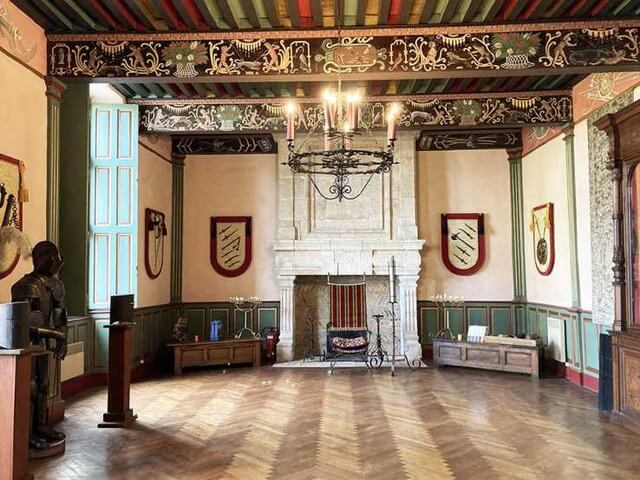
Chateau function room with original fireplace
Be Realistic
Some châteaux are in excellent condition, while others may require significant restoration. It's essential to consider the age of the château and what's important to you: somewhere you can move straight into with the family, a château to renovate or something in between.
Size Matters
Consider how much space you need. Châteaux can range from intimate properties to grand estates with hundreds of rooms and acres of land. Think about whether you prefer original features or the luxurious touches of more recent styles and modern conveniences.
The Legal Landscape
French Property Laws
Anyone can buy property in France, but there are specific rules regarding inheritance, taxes, and local zoning regulations. It's essential to understand these laws before making a purchase and to work with a bilingual estate agent.
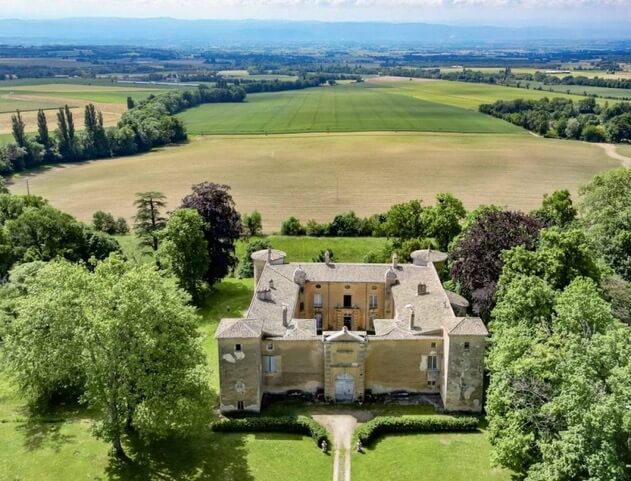
Listed chateau in southern France
Historic Preservation
Châteaux are often subject to regulations aimed at preserving their historical significance. Any renovations or alterations may require special permits from the French Ministry of Culture. It's advisable to consult with legal and architectural experts who specialise in French heritage properties.
Notaries and the “Compromis de Vente”
In France, all property purchases and sales are overseen by a notaire, who ensures that the transaction is legal and correctly recorded on the official registers and with the tax authorities. The "compromis de vente", or pre-contract, will specify the terms of sale, and once signed, it is binding.
How Long Does the Process Take?
Once the "compromis de vente" is signed and the 10-day cooling-off period has passed, the process begins. You could receive the keys to your château in 2 to 3 months, but delays are possible and to be expected. Factors such as summer slowdowns, the availability of property reports, legal document processing, delays with international payment transfers and financing issues can extend this timeline.
Sellers and buyers might agree on longer delays for personal reasons; the list is endless. It's essential to remain calm, flexible and patient, as château transactions take time to ensure everything is in order before completion.
Understanding Historic Monuments
Château Classé (Classified)
Anyone can purchase property in France, but there are specific rules regarding inheritance, taxes, and local zoning regulations. It's essential to understand these laws before making a purchase and to work with a bilingual estate agent.
Château Inscrit (Registered)
A "Château Inscrit" is a château registered on the supplementary inventory of historic monuments. Although this level of protection is less stringent than a "Château Classé," it still recognises the château's historical or architectural significance.
Restoring a Château in France
Renovation Challenges
Restoring a French château is not for the faint-hearted. You'll need to account for the costs of high-quality materials, skilled craftsmen and the time required to respect the building's historic integrity while incorporating modern comforts and improving energy efficiency.
Conservation Authority
Any renovation or restoration work undertaken must be authorised by the regional conservation authority (DRAC). In addition to standard building permits, specific permits will be required for historical monuments. You must conduct thorough due diligence and research; this is essential.
Sustainability and Efficiency
Many château owners are now integrating sustainable practices, such as solar panels and energy-efficient heating systems, into their restorations. These changes can eventually lead to reduced operational costs while improving the property’s standards and reports. It could also provide inspirational marketing material (images or videos) for your social media accounts or blog. Have you seen ours yet?
Financing A Château Purchase
Mortgage Options
Financing a château can be challenging, especially for foreign buyers and non-EU residents. Some French banks offer mortgages to non-residents; however, a substantial down payment (at least 20%, often more) is usually required. A strong financial history will improve your chances of securing finance. Be prepared to submit private financial information, including the source of earnings, credit history, age, family history, nationality, and other relevant details.
Alternative Financing
This is why some buyers opt for alternative financing options, such as private lenders, family members, generous friends or investor groups. Another option is using the income potential of the property (through tourism or events) to generate revenue and offset costs.
Monetising Your Château
Tourism is Plentiful
Many château owners recoup their investment by opening their property to tourists. Whether through guided tours, seasonal stays, seminars, cooking lessons or even private events, there is significant potential to earn income in the world's most visited country.
Events and Weddings
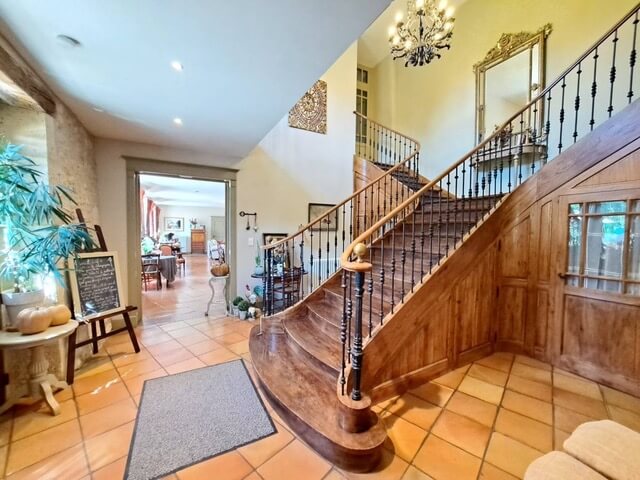
Dream venue for a wedding
French châteaux are ideal settings for weddings, conferences, filming movies or adverts, and special events. By offering the château as an event venue, owners can diversify their booking options and generate income throughout the year.
Agriculture and Vineyards
Some châteaux, domaines and estates come with land that can be used for vineyards, orchards or other agricultural ventures. Investing in wine production or other farm-to-table initiatives could generate an additional income stream. There may be grants and support schemes available; it’s worth asking the owner when you come to visit.
Potential Château Pitfalls
Hidden Costs
Beyond the initial purchase price, various costs are associated with owning a château, including unexpected repairs, legal fees and tax obligations. It's essential to have a good understanding of likely income and expenses, and to factor in ongoing maintenance costs when creating a budget.
Overestimating Income
As mentioned earlier, while a château may have the potential to generate significant income through tourism or events, it's important not to overestimate the property's profitability and to prepare realistic forecasts. Demand can fluctuate seasonally or be influenced by external factors. Did you know the summer has three seasons for the tourism industry?
Overlooking Regulations
Local zoning laws, environmental regulations and preservation rules can limit your ability to renovate or develop the property. Make sure you understand these regulations before making an offer and consult with experts to navigate them effectively.
Buy at the Right Price
Premium Pricing
Understandably, French châteaux command a premium compared to other historic properties and estates. Even if you find a bargain, a significant investment may be needed to restore it to a habitable state. It's crucial to have a professional inspection conducted and to factor in the costs of renovation, improvements and ongoing maintenance.
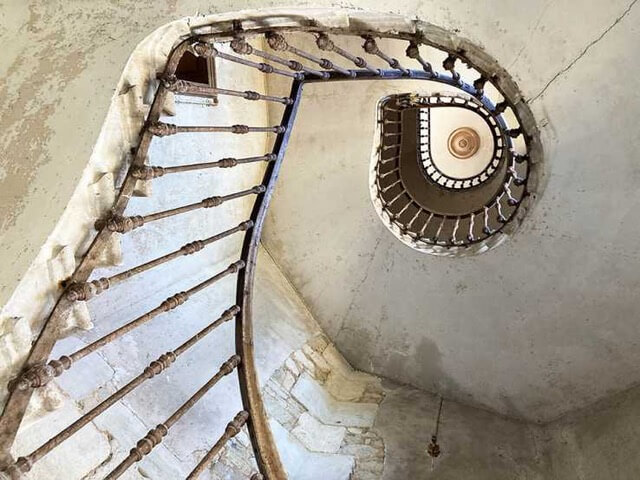
To be renovated chateau
Renovation Costs
The size and scale of châteaux and historical estates mean they are more expensive to renovate. Specialist materials and fixtures may be needed, but grants for restoring historic buildings are often available; the previous owner may be able to share information about them.
Ongoing Maintenance
Factor in ongoing maintenance costs, which can be higher than for 'normal' properties. Grants may be available, often tied to the château's opening to the public for a set number of days per year. It's a long-term commitment that requires careful budgeting and planning.
Top Buying Tips
The Age of the Château
Consider the age of the château and what's important to you: somewhere you can move straight into, a château to renovate, or something in between. Think about whether you prefer the simpler, older character or the touches of more recent tastes. Somewhere you feel you can call home.
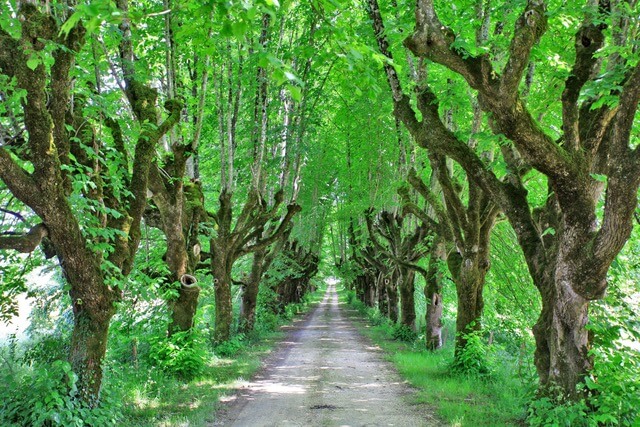
Tree-lined drive
Think About Land Size
Many châteaux come with extensive land, which can be valuable for wine production, farming, equestrian activities, or simply enjoying the outdoors. Bear in mind the upkeep that comes with owning extensive land, and be realistic about the amount of time you want to spend working on it. Most buyers aim to have gardens and manicured parks near their property, along a mix of meadows and woodland for privacy and ease of maintenance.
Buy in the Right Area
Research the various regions, flights, ferries, trains, and other transport options, as well as local villages, towns and cities, before you make your final choice. Consider the proximity to Paris and other major cities, as well as the local amenities and attractions. You will need to consider your guests, customers, family, and friends, so approach the situation strategically. Sometimes, an old-fashioned paper map offers a more comprehensive overview. Alternatively, try our Drawmap to search for properties.
Look for Potential
These châteaux typically feature numerous bedrooms, extensive outbuildings and guest suites that can be utilised to generate income. Consider the practical aspects of welcoming paying guests to your château, including access, parking and the necessary permits and licenses.
Use a Bilingual Estate Agent
Unless you're fluent and confident in your French speaking and reading skills, it's a good idea to find a bilingual estate agent or someone who is accustomed to dealing with real estate in France. Most estate agents will have someone who speaks some English, but it may not be enough to get you through the complexities of buying a historic château.
Working with Château Experts
Local Knowledge
Investing in a château property can be complex due to the age, size and unique characteristics of these estates. Buying and maintaining a château requires a good understanding of its historical and architectural intricacies, particularly for listed historic buildings. This is where the expertise of our local châteaux experts becomes invaluable.
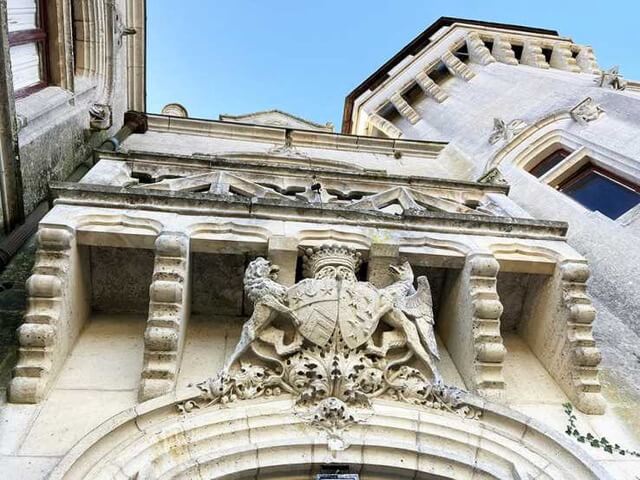
Château coat of arms
Bilingual Experts
These professionals possess in-depth knowledge of the legal, structural and preservation issues associated with owning a château or historic property in France. By working with English-speaking experts, buyers can navigate through the regulations to ensure that their investment is protected.
Off-Market: Myth or Reality?
Off-market châteaux are characterised by owner discretion, with details shared only with potential serious buyers. These off-market listings are not publicly advertised; instead, they are kept on file and selectively shown to buyers who have demonstrated a genuine interest and the financial capability to proceed. This approach ensures privacy and creates a more personalised experience.
I Want to Sell My Château: How to Get a Valuation?
Most château owners prefer to remain discreet about their properties to maintain bookings and local reputation. Many of them seek to market their château to international buyers outside of France. Engaging professionals who specialise in high-end, historic properties ensures an accurate valuation.
Tips to Find the Perfect Château
Choose Carefully
Choosing the right château is crucial; otherwise, living there can become a lonely and challenging experience. Be sure to inspect the outbuildings, as some may be in poor condition, leaving you with a beautiful château surrounded by dilapidated structures. It’s essential to conduct a thorough inspection and also to consider the costs of renovation and ongoing maintenance.
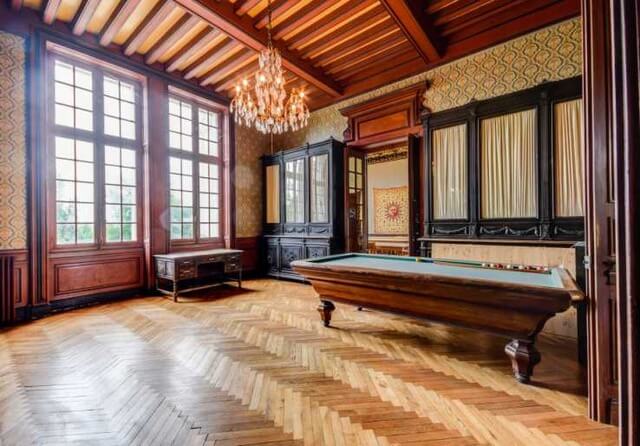
A Chateau games room
Business Potential
Châteaux can make profitable businesses. Châteaux with sufficient grounds are often sought after by sports businesses, such as fishing and equestrian schools, hunting, walking and wildlife grounds, and other outdoor activities. They can also be converted into wedding venues, rented out for vacation stays or seminars, or utilised for glamping and agricultural activities, such as vineyards, providing additional income.
Event Venues
Castles are great venues for weddings, religious gatherings, and other functions, making them not only a spectacular setting for a restaurant but also desirable and luxurious hotels, which attract affluent visitors, including locals. It's essential to learn about the practical aspects of welcoming paying guests to your château, including access, parking and obtaining the relevant permits and licenses.
Learn from Châteaux Owners
Look out for famous TV shows, there are many, such as Castle Impossible, Château DIY, Escape to the Château, with plenty more on YouTube. And see our real-life case studies to hear the successful stories from Kevin, Sharon or Caro on our French blog, all proud and happy château owners.
Make Your Château Dream a Reality
Buying a château is a lengthy process, but with the correct information and support, it can be a truly rewarding experience. This guide aims to provide you with all the information you need to turn your dream of owning a historic castle into reality. When you’re ready to start your search, explore our latest selection of French châteaux for sale.
Download the Complete Château Buyers Guide (free PDF)
Access our comprehensive 40-page guide to purchasing a château, available as a beautiful PDF filled with expert tips, numbers, checklists and images. Create a free account today to access it in your dashboard and print it if needed.
© Copyright my-french-house.com™, all rights reserved. This article and the images may not be published, broadcast, rewritten or redistributed, partly or entirely, without written permission. All the photos were taken from our chateaux listings at the time of writing.

